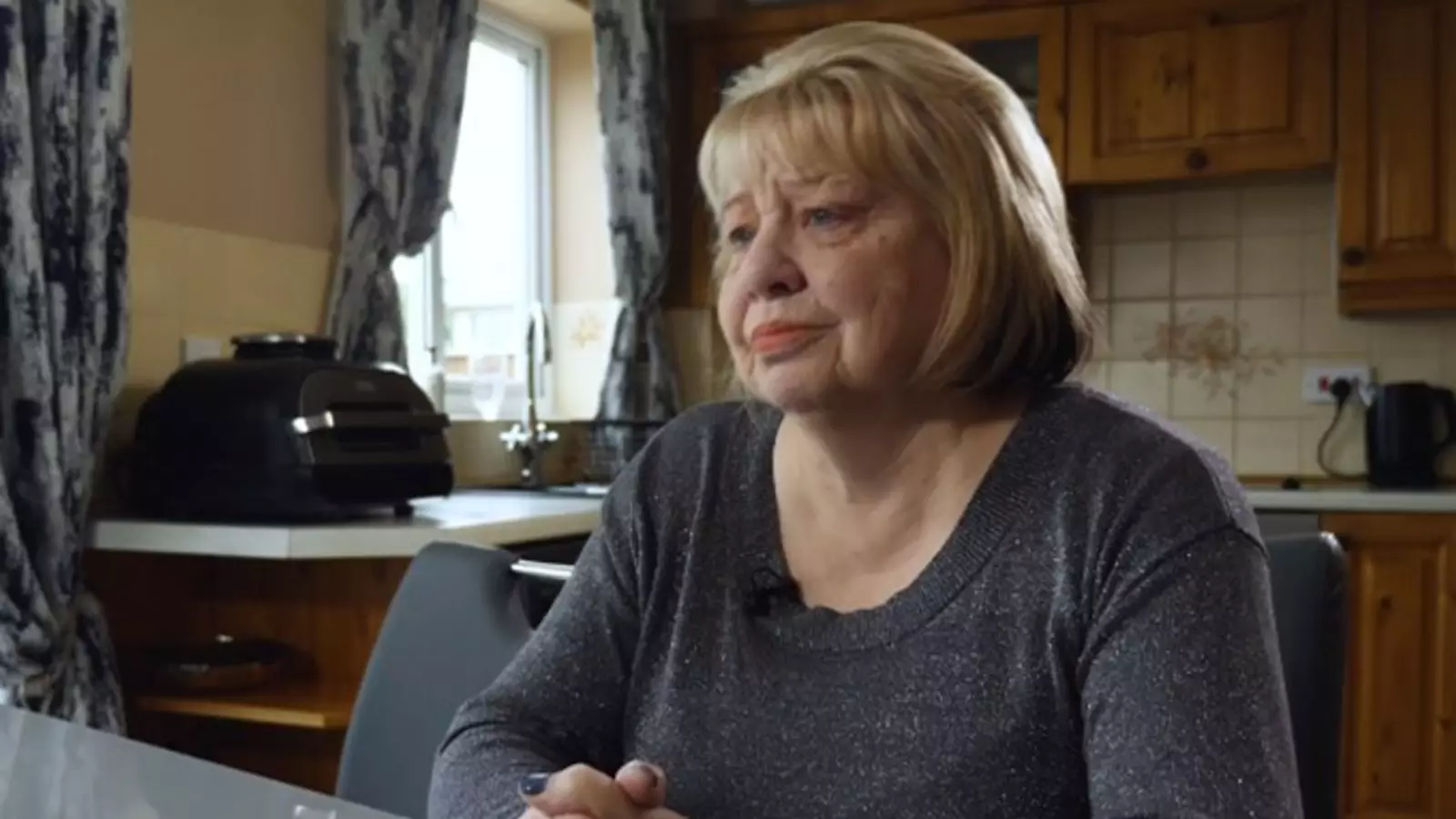Caring for a terminally ill loved one can be one of the most emotionally taxing experiences anyone can endure. This reality envelops Diane Edwards, who stands in the shadow of the profound loss she recently experienced with the passing of her ex-husband, Mick, who battled stage 4 bowel cancer. Just ten days after his death, Diane opens her heart to share the harrowing experiences she went through while caring for him, particularly highlighting the shortcomings of the health care system designed to support families during such difficult times.
Diane’s memories of assisting Mick during his illness are tinged with horror. Recalling their nights spent together, she explains that their relationship had transformed in ways she never anticipated. “He wasn’t the same person you knew or you were married to,” she laments. This reflects a poignant truth about terminal illness; it does not only affect the physical body of the patient but also alters the emotional and psychological landscape of those who love them. Diane’s recollections of cleaning up blood and helping Mick in his struggle paint a bleak picture of caregiving, one that is often romanticized but fraught with physical and emotional exhaustion.
In addition to the physical strain, the psychological toll is profound. Diane describes moments where she was pushed to the brink of despair—her resilience fading and the tears rolling down her cheeks as she faced the overwhelming responsibilities of caregiving. This emotional burden is compounded by the distress of witnessing a loved one endure such suffering, leading Diane to confront her own health concerns, realizing that if she didn’t prioritize her well-being, she, too, might end up hospitalized.
The landscape of health care, particularly at the end of life, has become a contentious issue characterized by confusion and inadequacies. After Mick’s hospitalization, the introduction of the NHS Continuing Healthcare (CHC) program seemed like a beacon of hope for the couple. However, the reality turned out to be far from reassuring. Diane highlights the shortcomings of the system, explaining how a remote assessment—coupled with the absence of family during pivotal meetings—left them feeling vulnerable and anxious about Mick’s future care.
Mick’s tragic decline was an indicator of the underlying issues within NHS assessment procedures. The system, designed ostensibly to support those in dire need, often becomes a battleground of bureaucracy, where interpersonal elements are overshadowed by impersonal methods of communication such as video assessments. For someone like Mick, who had already lost his independence and confidence, struggling with this form of assessment proved to be detrimental—and the consequences rippled through the family.
Diane’s ordeal underscores the frustrations many families encounter within the healthcare system. Upon being informed of Mick’s loss of funding, the emotional fallout was immediate and damaging. The situation evoked feelings of helplessness and undeserving guilt — not only did they face the impending loss of a loved one, but they also grappled with the fear of financial instability due to healthcare costs. This unmitigated stress evidently diverts families’ focus away from what should be their utmost priority: the comfort and dignity of their dying loved one.
The NHS Shropshire, Telford, and Wrekin Trust maintains that their assessments are conducted fairly and in line with national frameworks. However, the glaring discrepancies in how funding is allocated, as highlighted by various studies, raise eyebrows. With eligibility rates for CHC varying dramatically across regions—some with high eligibility while others languish at alarmingly low levels—it becomes increasingly clear that the system is not as equitable as it professes to be.
Amidst the turmoil, Diane’s narrative serves as a rallying cry for systemic reform in healthcare, particularly as it pertains to end-of-life issues. As advocates call for a more compassionate approach to care, Diane reveals that her ex-husband might have opted for assisted dying had it been a legal avenue in their country. This assertion not only brings forth the ethical dilemmas surrounding end-of-life care but also underscores the desperate need for options that promote dignity in death.
In reflecting on her experience, Diane’s story reveals the need for deeper empathy and understanding within the healthcare system. Families facing terminal illness must not only navigate their grief but also endure a maze of bureaucratic obstacles. The time has come to advocate for holistic changes that ensure care is not only adequate but also compassionate—transforming not just the outcomes of healthcare decisions but the overall experience for families who are forced to grapple with the complexity of loss.



Leave a Reply